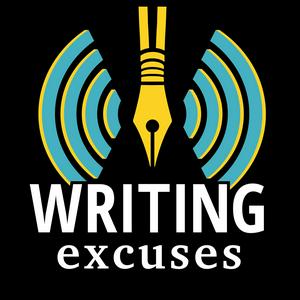Today, our hosts dig into how stories can feel fresh without losing what readers love. They explore the idea of “same but different” across genres, sequels, and series—looking at how small shifts in structure, context, tone, or theme can create meaningful novelty. Drawing on examples from novels, film, television, and games, we unpack how patterns, expectations, and core questions shape reader experience. Our conversation also widens to encompass the larger question of how writers can evolve while still feeling recognizably like themselves.
Homework:
Choose two works from the same franchise or series. Break down what stayed the same and what changed, then reflect on which choices felt satisfying, surprising, or off-putting—and why.
ANNOUNCEMENTS:
2/15 Cruise Prices Increase
The final WXR cruise* sets sail for Alaska in September 2026—get your tickets now before prices increase on February 15th!
Credits: Your hosts for this episode were Erin Roberts, DongWon Song, and Mary Robinette Kowal. It was produced by Emma Reynolds, recorded by Marshall Carr, Jr., and mastered by Alex Jackson.
Join Our Writing Community!
Writing Retreats
Newsletter
Patreon
Instagram
Threads
Bluesky
TikTok
YouTube
Facebook
Our Sponsors:
* Check out Gusto: https://gusto.com/WX
* Check out Quince: https://quince.com/wx
* Check out Talkiatry: https://talkiatry.com/WX
Support this podcast at — https://redcircle.com/writing-excuses2130/donations
Advertising Inquiries: https://redcircle.com/brands
Privacy & Opt-Out: https://redcircle.com/privacy


